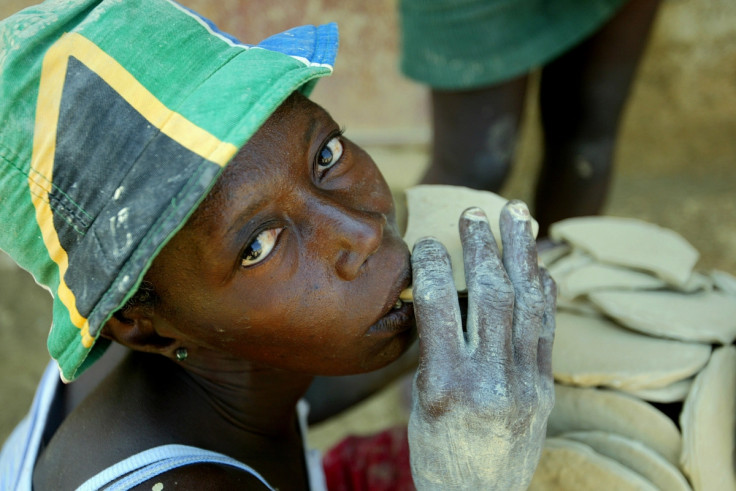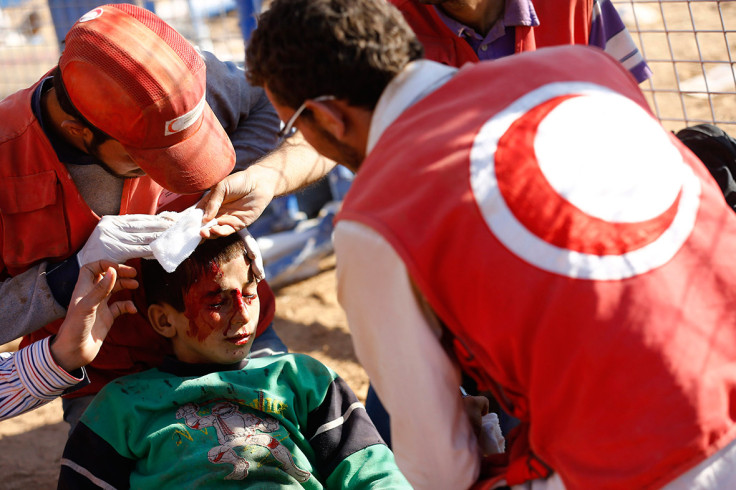2015 UN Millennium Development Goals: Brazil Hits Target But Others Failing on Poverty and Education

At least 36 million people have been lifted out of extreme poverty since 2003 in Brazil, where the government has also managed to reduce child mortality and improve education standards before the deadline established by the UN Millennium Development Goals.
Brazil's President Dilma Rousseff announced these achievements in a speech she delivered at the 69th session of the United Nations General Assembly.
"Brazil jumped from being the 13th to being the seventh largest economy in the world. Per capita income increased by more than threefold and inequality rates fell sharply," Rousseff said. "While in 2002, more than half the Brazilian population was poor or below the poverty line, today three out of every four Brazilians are part of the middle class and upper income ranges."
In her speech, the president also urged other countries worldwide to make efforts to halt poverty, promote equality among populations and reduce armed conflicts.
What are the Millennium Development Goals (MDGs)?
The eight Millennium Development Goals, issued by the UN in 1990, aim to eradicate poverty and hunger worldwide and make primary education accessible for everybody by 2015.
According to the UN, by 2015 it is possible to reduce by half the amount of people who starve worldwide, achieve acceptable working conditions for everybody, reduce gender inequality, successfully combat diseases such as HIV and malaria, reduce child mortality, improve maternal conditions and ensure environmental sustainability.

More Has to be Done
While Brazil has managed to already meet some of the MDGs, other countries are still struggling to overcome economic stagnation and extreme poverty. Some are also engaging in conflicts or are witnessing the rise of violent insurgences, such as Syria, Iraq and Nigeria, which impede the promotion of basic human rights.
Thousands of people worldwide still live below the poverty line. For example, in Haiti – the poorest country in the Americas and one of the poorest in the world - over half of the population of 10 million live on less than US$1 (£0.61) per day, and approximately 80% live on less than US$2 (£1.23) per day.
The Syrian civil war has claimed at least 160,000 lives in three years and at least 6.5 million people, most of whom are in urgent need of medical care, have been left displaced.
Congo has been listed several times as the worst place to be a woman and a mother. Not only are Congolese women raped by armed groups and soldiers, but they are victims of domestic violence, which remains largely unpunished.
In a similar situation, men who carry out violence against women are hardly ever prosecuted in India, one of the countries with highest rates of rape.
Both in South Sudan and Central African Republic civil wars are spiralling and thousands of civilians, including women and children, are being slaughtered by rebels.
Moreover, in South Sudan four million people are at risk of a man-made famine due to lack of funds which help NGOs provide basic assistance such as food and medicine.
Although remarkable results have been achieved in several fields – for example, a 2014 UN report said that 2.3 million people in impoverished areas have gained access to drinkable water since 1990 and that the political participation of women has noticeably increased in some countries – more efforts are required to meet the 2015 goals.
There are still too many people who starve, who are denied education, who are denied basic freedoms and who are subjected to the brutality of dictators and insurgents.
A much bigger involvement of the global community is required in order to meet the millennium goals, and sadly, some countries will still have a long way to go by 2015.
© Copyright IBTimes 2025. All rights reserved.






















